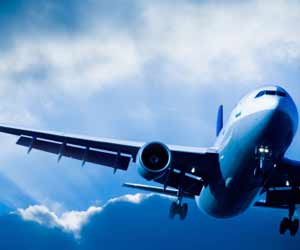Working in the Federal Air Marshal Service
As the federal organization designed to ensure the safety and security of U.S. air transportation, the TSA has undergone rapid expansion since 9/11. Federal air marshals are the primary law enforcement entity of the TSA and are deployed on passenger flights around the world, working as undercover armed law enforcement agents.

Job Description: A Day in the Life of a Federal Air Marshal
A federal air marshal spends much of his time on duty in airports or on airplanes, assessing his surroundings, looking for suspicious activity, and protecting airline passengers and crew members against potential terrorist violence. Being a federal air marshal is a high-pressure job that requires time away from home, constant alertness, and – like any law enforcement job – plenty of paperwork!
General Requirements and Training
The requirements and qualifications to become an Air Marshall are among the most stringent in federal law enforcement. Applicants must be US citizens under age 40 at the time of appointment and must meet Federal Aviation Administration (FAA) medical standards. After a preliminary qualification screening, further tests include mental health screening, a panel interview, drug test, fingerprint, and background checks.
Successful candidates must complete a fifteen-week training program starting with the U.S. Federal Law Enforcement Training Center’s Basic Police Training Program and followed by specialized air marshal training. This second phase of training includes instruction in international law, aviation medicine, arrest procedures, aircraft safety, recognition of criminal terrorist behavior, and close-quarters self-defense skills. Firearm proficiency is also essential; federal air marshals are required to possess the highest minimum pistol qualifications of any federal law enforcement agency.
Salary, Benefits and Opportunities for Advancement
Unlike most federal agencies that utilize the government’s GS pay scale, the TSA has its own unique pay scale, referred to as the SV pay scale.
Salary grades are differentiated by letters from A to M, with M designating the highest pay. Starting pay for federal air marshals generally ranges from level G ($43,207 – $66,943 annual base salary) to I ($64,214 – $99,586) (2020 salary numbers).
Benefits for federal air marshals include life and health insurance, paid vacation, federal savings plan, medical and dental coverage, retirement plan and transportation subsidies. Air marshal training is also fully federally funded.
Opportunities for advancement are possible, as air marshals may advance to become Supervisory federal air marshals, with the possibility of advancing to SV pay level K, with an annual base salary of $93,651 – $143,722.


 Teach English in Asia
Teach English in Asia  Cruise Ship Jobs
Cruise Ship Jobs  Alaska Fishing Industry Jobs
Alaska Fishing Industry Jobs  Sharing Economy / Gig Economy
Sharing Economy / Gig Economy